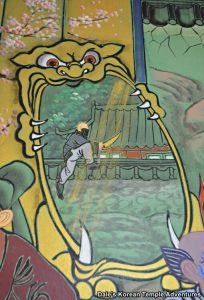The seven stars of the Northern Dipper are mighty gods in Heaven.
Rising, they (assemble) in the morning at the Golden Palace (of the Emperor of Heaven),
Setting, they cover the Kunlun Mountains.
They harmonize the principle with (human) law and moral order and control heaven and earth.
Category: chinese
“These words seem to be correct and yet are wrong.”
有人云, “自心淨土, 淨土不可生, 自性彌陀, 彌陀不可見!”
此言, 似是而非也.
People say, “Your own mind is the Pure Land, so you cannot be born in the Pure Land; your own nature is Amitābha, so Amitābha cannot be
seen.”
These words seem to be correct and yet are wrong.
The Four Great Vows, Lesson Two
Lesson One:
四 弘 誓 願
眾 生 無 邊 誓 願 度
煩 惱 無 盡 誓 願 斷
法 門 無 量 誓 願 學
佛 道 無 上 誓 願 成
煩 惱 (Kleśas)
5-350 煩惱即菩提 (The kleśas are the same as Bodhi.)
7-424 不斷煩惱入涅槃 (Don’t eradicate the kleśas and enter nirvana.)
The Four Great Vows, Lesson Two
Lesson One:
四 弘 誓 願
眾 生 無 邊 誓 願 度
煩 惱 無 盡 誓 願 斷
法 門 無 量 誓 願 學
佛 道 無 上 誓 願 成
The slides for the class are here (in Word and PDF format):
• Word: L2-revised-2
• PDF: L2-revised-2-pdf
Lotus Sutra at CBETA (妙法蓮華經)
世雄不可量, 諸天及世人,
一切眾生類, 無能知佛者。
佛力無所畏、 解脫諸三昧,
及佛諸餘法, 無能測量者。
慈眼視衆生 (see all sentient beings with the eye of compassion)
慈 cí compassion
眼 yǎn eye
視 shì see, look at
衆 zhòng everything, everyone
生 shēng birth, life
On Sects and Sectarianism in Chinese and Korean Buddhism
In dealing with East Asian Buddhism, Japanese and Westem scholars are
easily exposed to Japanese Buddhist sectarianism and western Christian sectarianism.
However, from the introduction of Buddhism to the period of Wonhyo, there are no
institutionalized sects that resemble Western religious sects or Japanese Buddhist sects.
For example, the scholars of the Chinese Huayan sect, actually established by Fazang,
do not have strong sectarianism, compared to Japanese Buddhist sectarianism and
western Christian sectarianism. The “Huayan sect” refers simply to the group of
scholars who are interested in Huayan Buddhism.

